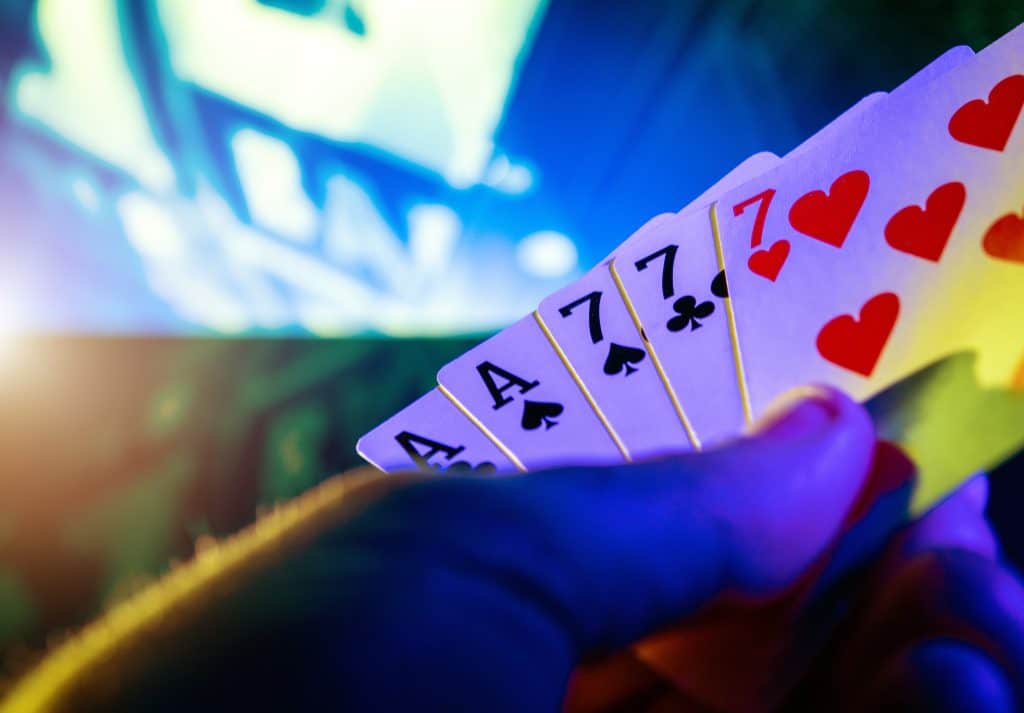Poker, a game that has captivated minds and sparked excitement for centuries, stands at the crossroads of classification. Is it purely a game of chance, or does it deserve recognition as a mind sport? This debate has simmered within the poker community and among sports enthusiasts for years, with passionate arguments on both sides. In this blog, we will delve into the intricate world of poker, examining the compelling case for poker’s classification as a mind sport and its potential inclusion in international sporting events.
While poker has long been synonymous with smoke-filled casino rooms and high-stakes gambling, there is a growing movement advocating for its elevation to the status of a mind sport, akin to chess or bridge. The distinction between games of skill and games of chance is pivotal to this discussion, as poker deftly straddles the line between the two. This blog will explore the unique blend of strategy, psychology, and mathematics that define poker, characteristics typically associated with mind sports.
Furthermore, we will navigate the landscape of international sporting recognition, where organizations like the International Mind Sports Association (IMSA) play a pivotal role in determining what qualifies as a mind sport. Poker enthusiasts have not been idle in their pursuit of legitimacy, and we’ll examine their efforts to gain recognition from IMSA and other sporting bodies.
The Mind Sport Classification
To understand the debate surrounding poker as a mind sport, it’s crucial to grasp what qualifies an activity as a mind sport. In essence, mind sports are games or competitions that heavily rely on intellectual abilities, strategic thinking, mental acuity, and skill. They are typically characterized by the absence of physical exertion as a primary factor in determining success. Examples of mind sports include chess, bridge, and Go.
There are several key criteria that often contribute to an activity being classified as a mind sport:
- Intellectual Skill Requirement: Mind sports demand high levels of intellectual skill. Players must employ strategy, critical thinking, and problem-solving abilities to outmaneuver their opponents. In poker, for instance, players must constantly analyze their opponents, calculate odds, and make decisions based on incomplete information.
- Minimal Physical Exertion: Unlike traditional sports like soccer or tennis, mind sports rely little on physical prowess. Success in mind sports is not determined by one’s physical fitness but by their mental aptitude and practice.
- Competitive Element: Mind sports involve competition against other individuals or teams. The competitive aspect encourages players to refine their mental skills and develop strategies to outwit their opponents.
- Structured Rules and Fair Play: Mind sports have well-defined rules and regulations to ensure fairness and integrity in competition. Adhering to these rules is crucial, as any deviation can lead to disqualification or penalties.
- International Recognition: Some mind sports have gained international recognition through associations like the International Mind Sports Association (IMSA), which promotes and organizes world championships for recognized mind sports.
Poker enthusiasts argue that poker fulfills these criteria, making it a prime candidate for classification as a mind sport. The mental skills required in poker, such as reading opponents, calculating odds, and managing emotions, are similar to those in recognized mind sports like chess and bridge.

The International Mind Sports Association (IMSA)
The International Mind Sports Association (IMSA) plays a pivotal role in the recognition and promotion of mind sports on a global scale. Founded in 2005, IMSA is an international organization dedicated to fostering and organizing competitions in mind sports, providing a platform for these intellectual pursuits to gain recognition and legitimacy.
IMSA’s mission is to promote the values of mind sports, including fair play, intellectual challenge, and cultural exchange, on an international stage. To achieve its goals, IMSA works with various member associations, each representing a specific mind sport. These associations collaborate to organize world championships and promote their respective disciplines.
Key aspects of IMSA’s role in the world of mind sports include:
- Recognition of Mind Sports: IMSA is responsible for recognizing and endorsing specific games and activities as mind sports. This recognition is based on criteria that assess the intellectual, strategic, and competitive aspects of the sport.
- World Championships: IMSA coordinates and sanctions world championships for recognized mind sports. These championships bring together the best players from around the world to compete at the highest level. Examples include the World Chess Championship and the World Bridge Championships.
- Promotion and Development: IMSA works to promote mind sports globally and encourages their development at all levels, from grassroots to elite competition. This includes organizing events, providing support to member associations, and fostering educational programs.
- International Collaboration: IMSA facilitates collaboration among member associations, helping them share knowledge and resources to advance their respective mind sports. This international cooperation strengthens the collective voice of mind sports.
Poker enthusiasts have sought recognition from IMSA for poker as a mind sport, given its reliance on intellectual skills and strategy. While poker is not yet officially recognized by IMSA, the poker community continues to make efforts to meet the criteria required for inclusion.
Poker’s Cognitive Demands
One of the central arguments in favor of classifying poker as a mind sport lies in the intricate cognitive demands it places on its players. Poker is more than a game of chance; it’s a mental battlefield where players employ a range of intellectual skills and strategies to outwit their opponents. Here, we’ll delve into the cognitive demands that make poker a compelling candidate for mind sport recognition:
- Strategic Thinking: Poker is fundamentally a game of strategy. Players must carefully consider every move, weighing the potential risks and rewards. This strategic aspect is akin to chess, where each decision impacts the overall outcome of the game.
- Psychological Insight: Reading opponents is a critical skill in poker. Players must assess the behavior, body language, and betting patterns of their adversaries to make informed decisions. This aspect of poker is often compared to the psychological tactics used in mind sports like poker’s cousin, bridge.
- Probability and Mathematics: Poker involves complex calculations and an understanding of probability. Players must calculate odds, assess the expected value of their decisions, and make statistically informed choices. This mathematical aspect aligns with the analytical thinking required in recognized mind sports.
- Decision-Making Under Uncertainty: In poker, players are often working with incomplete information. They must make decisions based on the cards they hold and the limited information available about their opponents’ hands. This mirrors the uncertainty inherent in many mind sports.
- Emotional Control: Poker demands emotional resilience. Players must manage their emotions, stay composed under pressure, and avoid tilting (making irrational decisions due to frustration). Emotional control is a characteristic shared with other competitive mind sports.
Conclusion
The classification of poker as a mind sport has been a topic of spirited debate for years, with passionate arguments on both sides. In this exploration, we’ve dissected the complex world of poker. Examining the case for its classification as a mind sport and its potential inclusion in international sporting events.
Poker’s cognitive demands, from strategic thinking to emotional control, are compelling arguments in favor of its recognition as a mind sport. The game requires a unique blend of skills, making it far more than a mere game of chance. Players must employ analytical thinking, psychological insight, and mathematical acumen to succeed, mirroring the cognitive demands of established mind sports.
The International Mind Sports Association (IMSA) plays a pivotal role in this conversation, as it serves as the gatekeeper for the recognition of mind sports on a global scale. While poker has not yet gained official recognition from IMSA, the poker community continues its efforts to meet the stringent criteria required for inclusion. Addressing concerns related to the gambling association of poker remains a challenge, but progress is being made.








